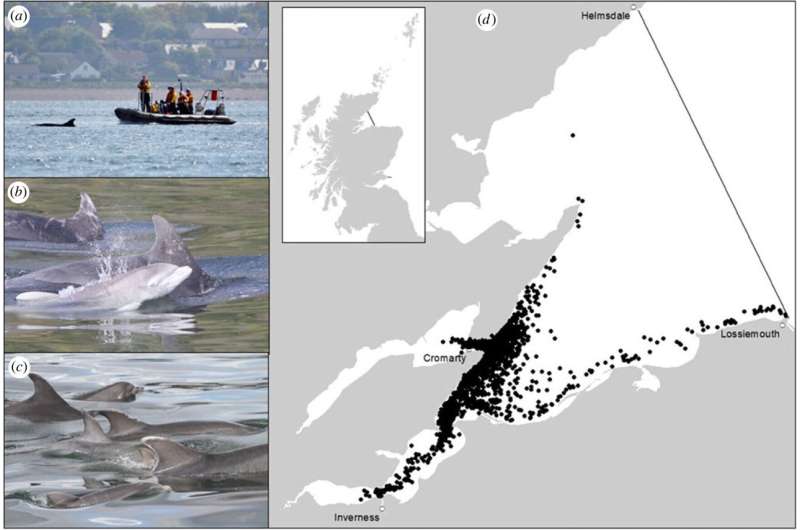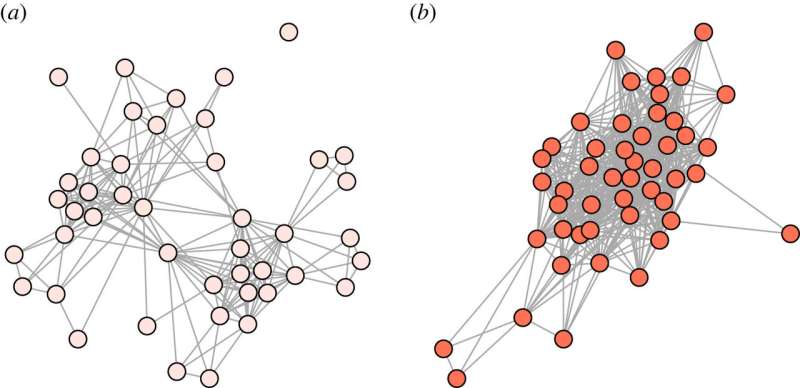This article has been reviewed according to Science X's editorial process and policies. Editors have highlighted the following attributes while ensuring the content's credibility:
fact-checked
peer-reviewed publication
trusted source
proofread
Dolphin friendships found to be facilitated by a fishy feast

We all know that there is nothing like hanging out with your friends for a big meal, and new research from the University of Aberdeen has shown that this is also true for Scotland's bottlenose dolphins.
The team from the University's School of Biological Sciences and Lighthouse Field Station found that bottlenose dolphins off the east coast of Scotland are more sociable during months when food is more abundant.
The study, which is published in Proceedings of the Royal Society B today, looked at how the dolphin's social behavior changed in response to food availability and changes in climate.
Dr. David Fisher, who led the research, said, "As part of a long-term study of bottlenose dolphins, we wanted to look at how the number of salmon as well as variation in climate would affect social behavior in the dolphins. The three behaviors we measured were general gregariousness, how they interacted with their immediate social circle, and their involvement in the wider social network."
"We found that the dolphins engaged in more social interactions with both immediate and distant associates in months of high salmon abundance than months of low salmon abundance. This might be as reduced food competition allows them to socialize more. Meanwhile, in years of lower salmon numbers, dolphins are more connected to distant parts of the population, possibly as they must travel further to find food."
"Our study also shows that the dolphins didn't change their social behavior in response to broad-scale atmospheric conditions, suggesting certain regular climatic cycles do not impact their behavior directly. Knowing this makes it easier to make predictions about how animal populations, in this case the dolphins, will respond to climate change."

Dr. Barbara Cheney added, "What was key for this study was our photo-identification research of the bottlenose dolphins using the Moray Firth Special Area of Conservation as it allowed us to identify individual bottlenose dolphins and their social connections. Studying this population since 1989 has enabled us to relate changes in the environment to changes in the dolphin's social behavior."
More information: David N. Fisher et al, Dolphin social phenotypes vary in response to food availability but not the North Atlantic Oscillation index, Proceedings of the Royal Society B: Biological Sciences (2023). DOI: 10.1098/rspb.2023.1187
Journal information: Proceedings of the Royal Society B
Provided by University of Aberdeen




















